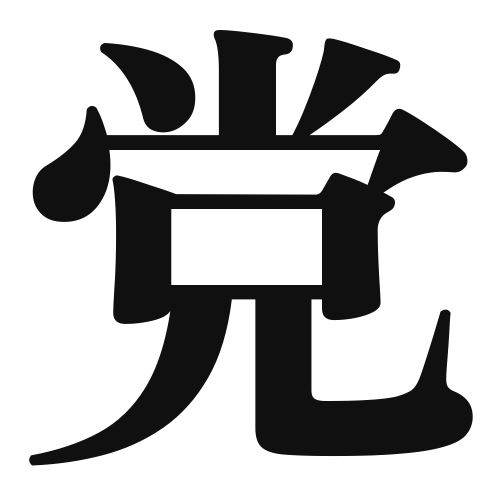1. Overview of Meaning
The kanji “党” (tō) means “party” in the context of political parties or groups. It signifies an organized group of people who share common goals and ideologies, often in the realm of governance or social movements.
2. Formation and Radicals
The kanji “党” is a compound character (会意文字) that combines two elements: the radical “党” itself, which represents a group or faction, and the phonetic component “当” (tō), which contributes to its pronunciation. The character is not derived from pictographs or ideographs but rather from the combination of meanings.
The radical for “党” is “党” (tō), which is also the entire character.
3. Examples of Usage
Common words and phrases that include “党” are:
- 政党 (seitō) – political party
- 与党 (yotō) – ruling party
- 野党 (yatō) – opposition party
Example sentences in daily conversation:
- 「彼は新しい政党に参加しました。」 (Kare wa atarashii seitō ni sanka shimashita.) – “He joined a new political party.”
- 「野党は政府の政策に反対しています。」 (Yatō wa seifu no seisaku ni hantai shiteimasu.) – “The opposition party is against the government’s policies.”
4. Synonyms and Antonyms
Similar kanji with related meanings include:
- 団 (dan) – group or organization, which emphasizes unity rather than political affiliation.
- 派 (ha) – faction, which refers to a smaller group within a larger organization.
Antonyms include:
- 無党派 (mutōha) – nonpartisan, indicating a lack of affiliation with any political party.
5. Cultural and Historical Background
The kanji “党” is deeply rooted in Japanese culture, particularly in the context of its political history. Political parties have played a significant role in shaping modern Japan’s governance and societal structure.
Proverbs and idiomatic expressions related to “党” include:
- 「党利党略」 (tōri tōryaku) – meaning “party interests and strategies,” which reflects the often self-serving nature of political parties.
